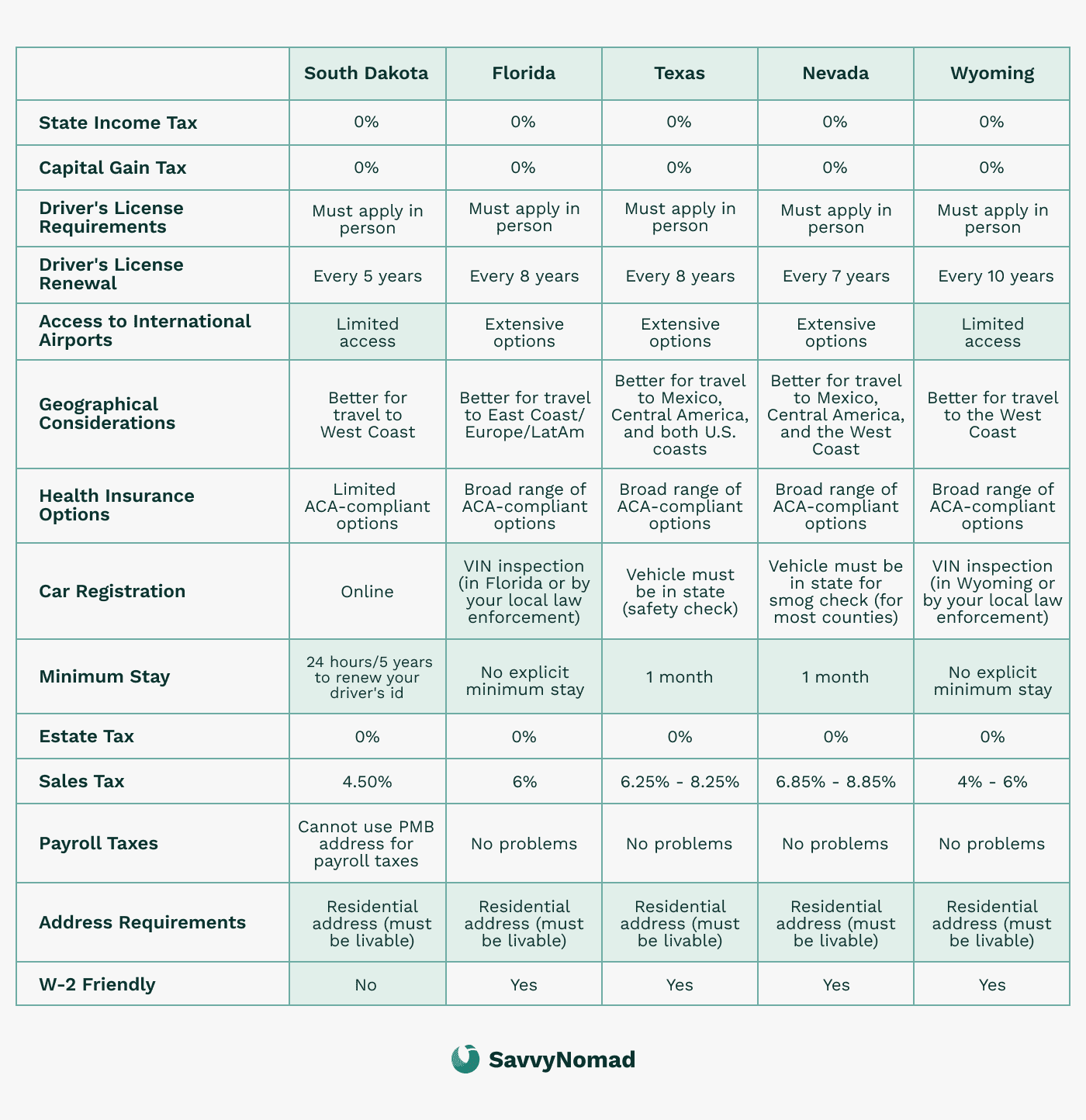How to terminate Illinois residency?

Leaving Illinois residency can be a smart move if you're looking for lower taxes, a new job, or a lifestyle change. Illinois has a flat income tax rate of 4.95%, and as a resident, you're taxed on your worldwide income. For many people, moving to a state with no income tax, like Florida, Texas, or Nevada, can save a significant amount of money.
Whether you’re heading south for warmer weather, retiring, or simply seeking new opportunities, making sure you properly leave Illinois residency is important to avoid paying unnecessary taxes. This guide will walk you through the steps to officially establish a new home, cut ties with Illinois, and manage any ongoing tax responsibilities related to Illinois income sources.
Step 1: Establish a new domicile
To officially leave Illinois residency, the first step is to establish a new domicile in another state. This involves physically relocating and making sure you demonstrate that your new state is your permanent home.
Here’s how to do it:
1) Establish new residency
- Secure a residential address: Start by securing a place to live in your new state. Whether you choose to rent or buy a home, having a permanent address is essential to proving your intent to establish residency. Some states, like Florida, offer tax benefits like the homestead exemption, which can help reduce property taxes.
This can be especially useful for digital nomads or expats who want a Florida documentation footprint in a tax-friendly state, while recognizing that the address itself does not guarantee any particular tax outcome or acceptance by every agency or institution.
- File a Declaration of Domicile: In states like Florida, you can file a legal document stating that your new state is now your permanent home, making it official.
Residency guides:

2) Relocate your belongings
Move your personal belongings to your new home in the state. This helps show that your move is permanent, as you are transferring your life to a new location.
3) Spend time in your new state
The more time you spend in your new state, the better. It reinforces that you are truly living there. Be mindful to limit the time you spend in Illinois during this period, as too many visits back could complicate your residency status.
4) Transfer IDs and vehicle registrations
Update your driver’s license and vehicle registration as soon as possible. States often view these documents as major proof of your intent to live there permanently.
5) Register to vote
Registering to vote in your new state is an important step to show that you’re committed to being part of your new community. Be sure to also cancel your Illinois voter registration.
6) Update financial accounts
Notify your banks, credit card companies, and other financial institutions about your new address. This helps make sure all your official documents and accounts consistently reflect your new residency.
7) Notify your employer
If you’re employed, make sure to notify your employer about your move so they can update your payroll and tax withholdings. This helps reduce the chance that Illinois taxes continue to be withheld from your income after you’ve changed residency.

Step 2: Sever ties with Illinois
Once you’ve established your new domicile, the next critical step is to sever all significant ties with Illinois. Doing so can help reduce the risk that Illinois continues to treat you as a resident for tax purposes and lower the chances of being taxed as a resident by both states.
Ensure that any service delivery contract you have with Illinois-based providers is terminated or transferred to your new state to avoid any legal complications.
Here’s how to effectively sever ties:
1) Close Illinois financial ties
- Close local bank accounts: If you have Illinois-based bank accounts, consider closing them and transferring your funds to banks in your new state. This demonstrates that your financial life is now rooted in your new home.
- Cancel Illinois voter registration: Make sure you cancel your voter registration in Illinois and register to vote in your new state. Voting records are often used to determine residency.
- Update personal records: Update your address with the IRS, Social Security, and any other relevant entities. Keeping all personal and financial records in your new state helps solidify your move.
2) Sell or lease property
If you own property in Illinois, selling it is the strongest way to signal that you no longer live there. If selling isn’t an option, consider leasing it out on a long-term basis. This helps show that the property is not for personal use and is no longer your primary residence.
3) Cancel local subscriptions/services
Make sure to cancel memberships, subscriptions, and services tied to Illinois, such as gym memberships, utility services, and local clubs. Maintaining these services could suggest that you’re still tied to the state, so it’s best to transfer or cancel them.
4) Transfer healthcare and insurance
Start using healthcare providers in your new state and update your health insurance records to reflect your new address. This is another way to show that your day-to-day life is centered in your new location.

Step 3: Time spent outside Illinois
Managing the amount of time you spend in Illinois is crucial for successfully severing your residency. Illinois focuses on your domicile and overall pattern of presence, but a 183-day threshold is a common benchmark the state may look at when assessing whether you effectively still live there. Staying in Illinois for too many days could contribute to the state continuing to treat you as a resident, which may lead to ongoing tax obligations.
Here’s how to manage your time effectively:
183-day benchmark
- Stay under 183 days: Spending 183 days or more in Illinois during a calendar year, especially if you still have significant ties there, can strongly support Illinois treating you as a resident for tax purposes. To strengthen your nonresident position, you should aim to spend fewer than 183 days in Illinois each year. This includes any visits back to Illinois, so plan your travel carefully.
- Maintain travel records: It’s crucial to maintain detailed records of your time spent outside Illinois, such as flight tickets, hotel receipts, or any other documents that can prove you were not in the state. These records will be useful if your residency is ever questioned by tax authorities.
Step 4: Illinois-sourced income
Even after you’ve left Illinois residency, you may still have tax responsibilities for income earned within the state.
Here’s how to manage ongoing obligations for Illinois-sourced income:
1) Ongoing Illinois taxes responsibilities
If you continue to earn income from Illinois, such as rental income, business profits, or wages, you’ll need to file a non-resident Illinois tax return. This ensures you only pay taxes on the income sourced from Illinois, while your income from other states remains separate.
2) Rental or business income
If you own rental property or a business in Illinois, any income generated from those sources will still be subject to Illinois state taxes. It's important to consult with a tax professional to ensure compliance with Illinois tax laws, especially if you have complex income streams that tie back to the state.





